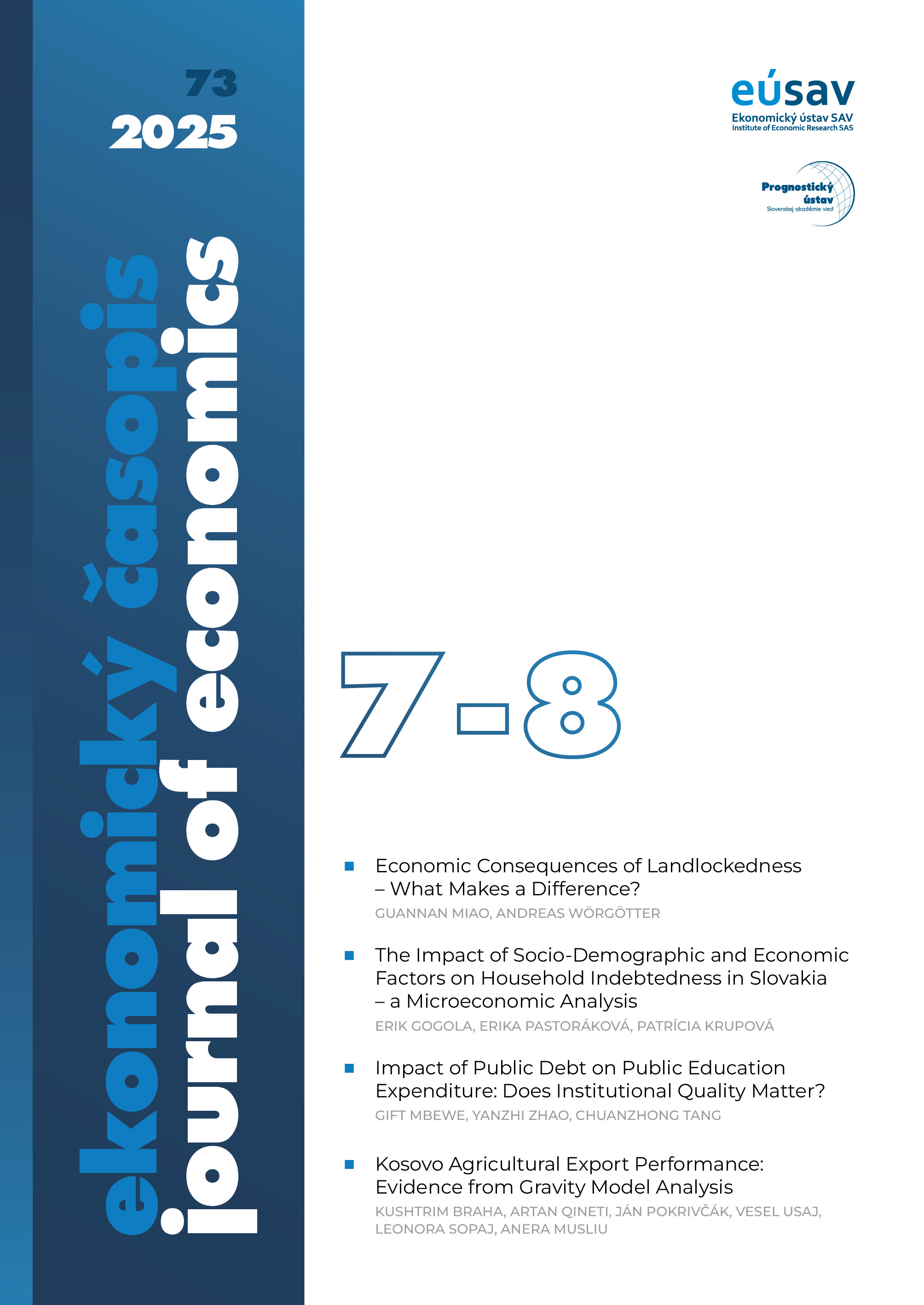Kosovo Agricultural Export Performance: Evidence from Gravity Model Analysis
DOI:
https://doi.org/10.31577/ekoncas.2025.07-08.04Keywords:
agricultural export, export potencial, gravity model, panel data, KosovoAbstract
The underperformance of the agricultural sector in Kosovo stems from small subsistence farming, land fragmentation, and low productivity, resulting in limited agricultural exports and a persistent trade deficit. This study examines the key determinants of agricultural exports and evaluates Kosovo’s export potential using an augmented gravity model. The analysis employs a Poisson Pseudo Maximum Likelihood (PPML) estimator with high-dimensional fixed effects, covering bilateral export flows to 45 trading partners over the period 2005–2020. Results reveal that agricultural exports are strongly influenced by domestic production capacity, rather than the importing country's absorption potential. The presence of a Kosovar diaspora significantly facilitates exports flows by reducing information asymmetries and transaction barriers. Furthermore, the study highlights the positive effect of trade liberalization has supported export growth, particularly through the Stabilisation and Association Agreement (SAA) with the European Union. Despite these developments, Kosovo’s agricultural exports remain underperforming, with considerable untapped export potential across key trading blocs. The findings underscore the need for policy interventions focused on enhancing productivity, aligning with international quality standards and strengthening institutional capacity to fully exploit agricultural export potential.
Downloads
Published
Issue
Section
License
Copyright (c) 2025 Kushtrim Braha, Artan Qineti, Ján Pokrivčák, Vesel Usaj, Leonora Sopaj-Hoxha, Anera Musliu

This work is licensed under a Creative Commons Attribution-NonCommercial-NoDerivatives 4.0 International License.


